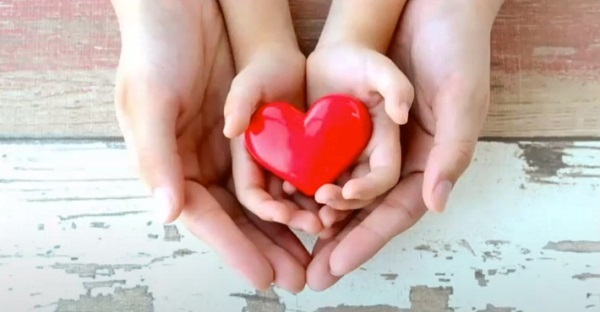
How to help kids learn — and feel loved — during this challenging school year
By Melissa Rayworth
As the new school year was approaching in August, the Transform for Tomorrow team met to figure out how we could best support parents and kids.
Last spring, we had shared expert advice and resources when families were suddenly plunged into remote learning. By August, it was clear more was needed. The work of supporting our students through remote learning remained, while the new school year added a further challenge: Families were now facing the mental health and physical health risks that came along with hybrid school reopenings.
So throughout the month of September, Transform for Tomorrow and Remake Learning Days Across America (RLDAA) partnered to share six webinars tackling different aspects of this unprecedented school year.
On Sept. 2, Dr. Megan Culler Freeman shared information on COVID-19 and Kids Health. A week later, back-to-back webinars shared details on supporting young children’s social and emotional wellness and helping tweens and teens with mental health. Then on Sept. 16, Windy Lopez-Aflitto from Learning Heroes shared five steps parents could take to partner effectively with teachers. And on Sept. 23, the So Now What series discussed how to safely and effectively use technology in a world of virtual learning.
Last night, the series wrapped up with a sixth seminar on learning resources for families. RLDAA producer Dorie Taylor kicked off the event and shared research on the valuable role of parents in learning.
“Working with the Global Family Research Project on Remake Learning Days, we learned that children benefit from hands-on learning, and they advance even further when their parents and other caregivers engage in learning alongside them,” Taylor said. “In fact, family engagement in learning makes students more likely to succeed. And this parental/caregiver involvement grows when schools, libraries, museums, out-of-school-time programs and all the places where children learn reach out to engage with families.”
This theme of parental engagement was echoed by Lauren Kubiak, a teacher-librarian in the Butler School District, who was the seminar’s first presenter. Among the ideas and resources she recommended:
- Rather than be a spectator of a child’s reading, parents can select books with their children and read alongside them. Give kids wide latitude to choose book topics that appeal to them and trust their instincts. Even if you think they should be pushing toward more challenging books, let them stick with books they love (she cited the “Captain Underpants” and “Diary of a Wimpy Kid” book series). Fostering that love of reading is the priority. If you want to learn more about the books your child likes or discover other literacy advice, Common Sense Media can be a big help, she said. And comics and graphic novels are definitely OK.
- Reading aloud doesn’t have to end when kids are old enough to read themselves. Families can listen to audio books together or read aloud together, making a social connection and sharing their love of reading.
- Resources like the Power Library databases and Google’s Be Internet Awesome
Then Melissa Unger, a K-2 STEAM teacher at South Fayette Elementary, shared insights for supporting kids in grades K through 6. Highlights of her presentation included:
- This is a great moment for really asking kids what they want to learn more about and pointing them toward resources where they can dive into self-guided learning. She mentioned the Pittsburgh STEAM station youtube channel and Kidsburgh‘s Maker Mondays, as well as exploratorium and Wonderopolis.
- To create a learning environment at home, parents can encourage kids to use the thinking that goes into engineering design: Ask a question, imagine solutions, plan a project to explore a solution, then try it out. Depending on how things go, improve your experiment and try again. Whatever a child’s interests, this problem-solving approach can help them take calculated risks, build curiosity and persistence, and bring a playful approach to all kinds of learning.
And finally, Dr. Janeen Peretin, director of communication, innovation and advancement at Baldwin-Whitehall SD, offered ideas for successfully supporting older students in grades 7 through 12. She offered a wide range of resources for academic learning, brainstorming about future careers and building life skills.
In addition, she spoke about helping teens figure out how they learn best. “We know that over the course of their lifetime, they’re going to change jobs so many times and they’ll have to reinvent themselves,” Peretin said. “So learning how to learn will probably be the most valuable skill that they have.”
But perhaps most powerfully, she offered viewers insight from a survey of students about what they really need. How, she asked them, can your parents or caregivers better support you today?
Students told her this: We need space, time and patience. “Yes, they are under stress. But they’ll figure it out and they’ll be OK,” Peretin told the seminar audience.
Kids aren’t expecting their parents to have distance learning expertly figured out. “They simply want to know that you’re in their corner and that you love them.”
You can find a recording of this final session of the September So Now What? series here. And you can explore more resources from the Tomorrow campaign here.